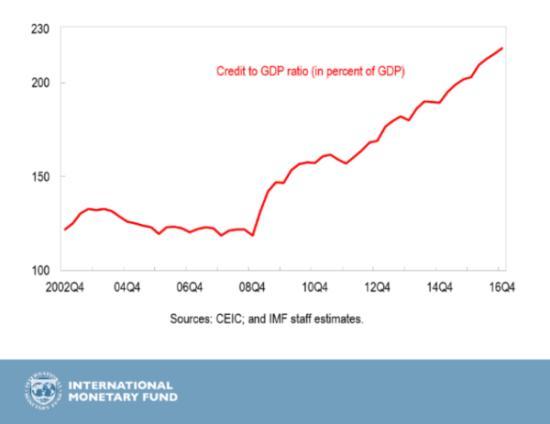One of the recurring themes of financial history is government over-reach leading citizens to mistrust the local currency and move money overseas, prompting the government to try to trap that wealth within its borders. This nearly always fails because rich people are clever and borders are really hard to seal.
The latest chapter in this story involves China – which has engineered an epic debt binge in the past decade, and bitcoin – which has emerged as a highly efficient way to move capital across national borders. The following chart shows that between 2009 and 2016 China’s debt soared to levels comparable as a percentage of GDP to that of the US leading up to the Great Recession:

This explosion of credit produced thousands of new paper millionaires, many of whom correctly understood that bad things tend to follow huge increases in financial leverage. They began moving their money to places like Vancouver and San Francisco, which prompted Beijing to respond with capital controls. See:
China’s New Capital Controls Expected To Slow Real Estate, But Improve Country’s Economic Health
China’s Yuan Outflows Plummet, Showing Capital Controls Pay Off
China Is Said to Ban Bitcoin Exchanges While Allowing OTC
Score one, apparently, for repressive government. But cyberspace doesn’t recognize national borders, and the rise of cryptocurrencies has changed the game for both dictators and the capital they hope to control.
China’s Liquid Injection Could be Bitcoin’s Delight
(Coin Telegraph) – In an attempt to lift market sentiment, China has dumped cash totaling over 810 bln Chinese yuan – about $130 bln – into its economy over five days. This is a move to solidify the economy of the country and boost the nation’s supply, but they may have just helped their biggest enemy.
The Chinese government, since its shock ban on Bitcoin exchanges and ICOs, has been concerned with trying to keep capital in the country and thus seen it prudent to quash Bitcoin and other cryptocurrencies.
However, the cryptomarket in the Asian country has found ways to stave off the killing blow from regulators, and this most recent move could actually benefit the hungry Bitcoin investors still prevalent in China.
Trickle-down effect
The extra liquidity came about thanks to repurchase deals. This sees the Central Bank buying securities from commercial banks as they agree to sell them again in the future. This capital is now floating around, quite liquid, in the economy, and there is no doubting it will join the Bitcoin revenue stream.
Nomura analysts said in a note, adding that the market is pricing in maintenance of a prudent monetary policy stance:
“We read this as a sign that financial deleveraging will be a multi-year theme and that deepening financial reforms are underway.”
Because Bitcoin continues to live in China, behind a black market-style wall, there is still a demand as the public find new and innovative ways to secure cryptocurrency.
Thus, it seems that China may well be shooting themselves in the foot with this latest move as it will no doubt have a trickle-down effect, leaving more capital to flow into cryptocurrency. From there, the extra liquidity could very easily siphon out of the country, unregulated and against the wishes of the regulators.














Leave A Comment